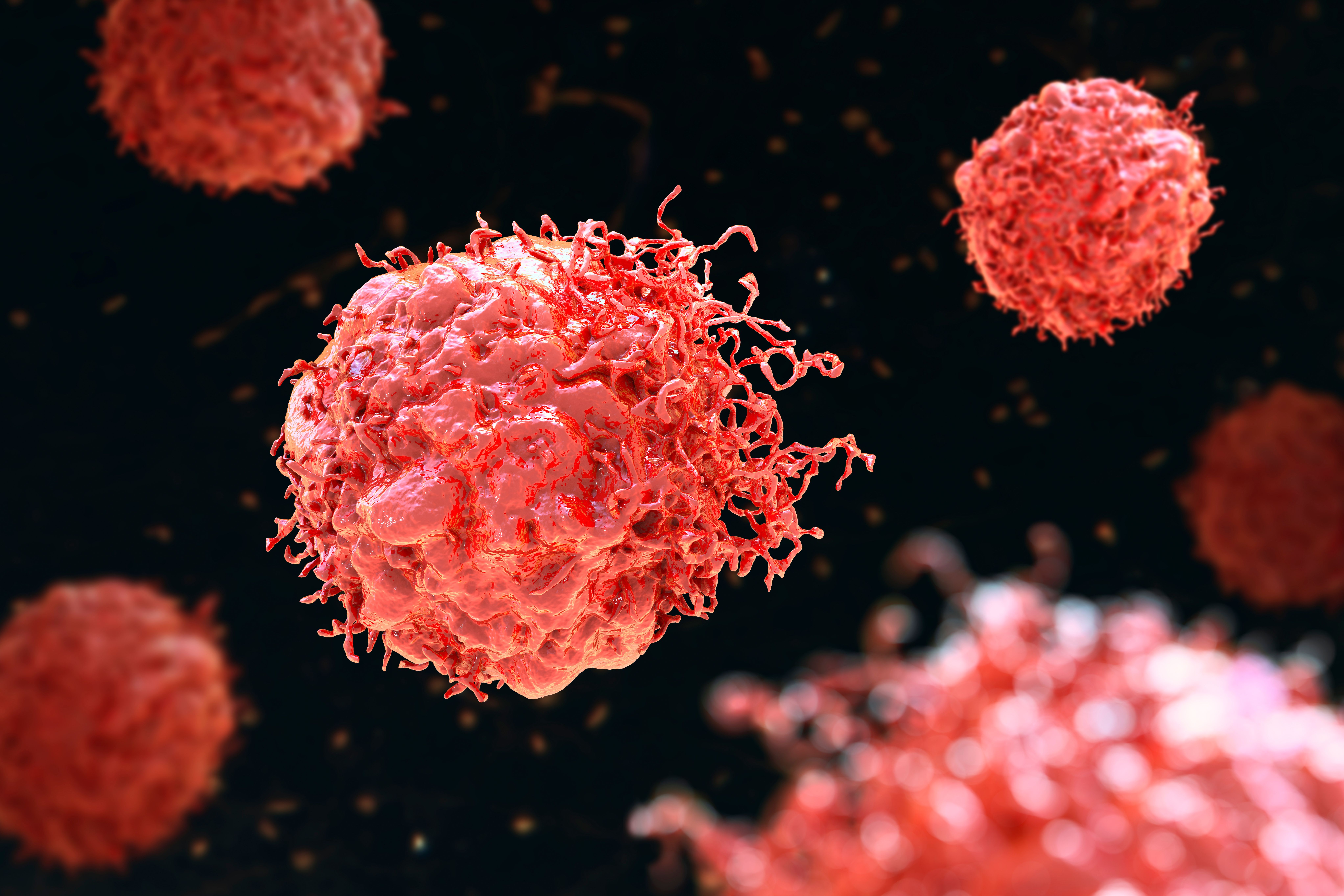Promising Research to Advance Treatment of Gastrointestinal Stromal Tumors
In the interview, Alexander Helfand, MD reviewed the latest in gastrointestinal stromal tumor research, and hopes for the future.
Alexander Helfand, MD

Targeted therapy for gastrointestinal stromal tumors (GIST) has offered prolonged survival and better disease control compared with historic treatments. According to Alexander Helfand, MD, there is still room to improve patient outcomes, especially for patients receiving first-line treatment.
Currently, both early-phase and late-phase clinical trials of immunotherapy added to targeted therapy have shown encouraging results. Helfand, medical oncologist/hematologist at Allegheny Health Network (AHN) Cancer Institute, explained that final results will be read out within the next few years. In the meantime, there are other important research topics to evaluate for patients with GIST.
“We need to find first-line options that essentially keep patients alive with better disease control for longer. I think that studying these combinations is going to be of exceeding high importance in moving the bar. I'm optimistic that looking at different TKIs [tyrosine kinase inhibitors] will help give us additional options, but I think, in the future, combination options are going to be what ultimately changes standard of care.”
In the interview, Helfand reviewed the latest in GIST research, and hopes for the future.
Targeted Oncology: Which late-phase clinical trial for patients with GIST should other community oncologists have their eyes on?
Helfand: There are several exciting trials going on, but I think that the most exciting trial is probably the PEAK trial [NCT00819780]. That's basically looking at a comparison between patients receiving an experimental aging called bezuclastinib [PLX 9486], along with sunitinib [Sutent] and comparing to patients receiving sunitinib alone.
Cancer cells | Image Credit: © Dr_Microbe - www.stock.adobe.com

What can you tell us about this study’s background?
In terms of the background for this trial, we know there's a significant need for superior second-line treatments, while patients who received imatinib (Gleevec) in the first-line and have good outcomes. We do know that the median progression-free survival is between 20 to 26 months. Thus, these patients will essentially all need an option for second-line therapy. The goal of the PEAK trial is to assess whether this novel agent will add to benefit.
What we know is that in patients who have multiple KIT mutations, sunitinib is the standard of care in the second-line. We also know that patients with exon 17 and 18 mutations do not do as well with sunitinib as patients who have other mutations, for example, exon 9, or an exon 13 or 14. Bezuclastinib targets these mutations in exon 17 and 18. This sort of adds to the rationale for the usage of this drug in combination with sunitinib in the second-line setting.
We will have to see what it shows, but I think it’s 1 on the most promising phase 3 trials going on currently.
What preliminary findings have been reported so far?
This trial had a phase 1 lead in that was presented at ASCO in 2023. Essentially, there's a report of good tolerability with a lack of excess adverse events over along with the known toxicity profile of sunitinib. In terms of population, 95% of the patients had metastatic disease, and 5% had locally advanced unresectable disease. Ultimately, it found there were no grade 4 or 5 adverse events. Most were low-grade, and the major toxicities were diarrhea, neutropenia, and transaminitis.
In this early trial with early follow-up, there was excellent disease control across the cohort. There were mostly patients with stable disease. Considering this, the trial is moving on to the phase 3 component comparing the 2-drug regimen vs sunitinib alone. Now, what is this drug that's being studied? Bezuclastinib is essentially a small molecule tyrosine kinase inhibitor. It is specifically known to inhibit KIT, not only the D816V mutation, but also has specificity for mutations in exons, 9,11,17, and 18, which is large part of the rationale for its use in patients who develop secondary KIT mutations leading to imatinib resistance and resistance to other TKIs. These patients may benefit from the synergistic effect of targeting not only the primary driver mutations, but also the second mutations. We'll have to see what happens. Results are not expected until 2026, in terms of ultimate readout for PFS, but we are excited to see results.
Which early-phase clinical trial for patients with GIST has caught your eye recently, and what did the data show?
One exciting trial came out in 2022, which is a phase 2, single arm trial of imatinib along with a MEK inhibitor called binimetinib [Mektovi], and this one recruited 42 patients with metastatic GIST. Imatinib and binimetinib showed a 69% partial response [PR] rate, along with a median PFS of about 30 months with median overall survival was not reached. The study wasn't powered to detect overall survival difference, but I think that is quite promising, and we do not have a lot of first-line trials, partially because the standard of imatinib is already high. That is why these combination trials are appealing.
I’m not sure whether a phase 3 study is being pursued for this combination, but it’s certainly promising.
Another promising trial came out a few years ago is EORTC STBSG 131 or CaboGIST [NCT02216578], which basically looked at cabozantinib [Cabometyx] in the third-line and showed a clinical benefit rate of about 82% and a 14% PR rate, but that's not bad in the third-line. I don't know if that would ever seek an FDA indication, but I think that certainly it reinforces that we have multiple TKIs which can be used.
The other things that I think is promising is looking at combination of TKI and immunotherapy. There are a number of different trials going on. One is the ATEZOGIST trial [NCT05152472] which is a French trial, looking at fourth-line patients who progressed on imatinib, sunitinib, and regorafenib [Stivarga]. What's interesting is they’re randomizing by exon 11 wild-type vs mutant. I think it will be interesting to look at and see whether you we can rechallenge patients with imatinib, which we know has a limited duration of effect, and whether that can be potentially aid with the addition of immune checkpoint inhibitor.
The primary outcome for that trial is PFS, and that should read out sometime in 2026. There are also trials going on looking at imatinib in addition to ipilimumab [Yervoy], that's out of MD Anderson Cancer Center, and it’s a phase 1 study. There’s also another French study looking at the addition of regorafenib to avelumab [Bavencio] for patients for third-line and later. I think that we'll have to see what happens in terms of whether these PD-1 inhibitors add something to the TKI therapy. I'd say, 2 to 3 years, we should have some results, to give us a sense of whether we can move the bar with the addition of immunotherapy.
As investigators continue to release data to advance the field. What unmet needs do you hope to see addressed in the near future?
Referring back to some of the things we've already discussed, we need to find first-line options that essentially keep patients alive with better disease control for longer. I think that studying these combinations is going to be of exceeding high importance in moving the bar. I'm optimistic that looking at different TKIs will help give us additional options, but I think, in the future, combination options are going to be what ultimately changes standard of care.